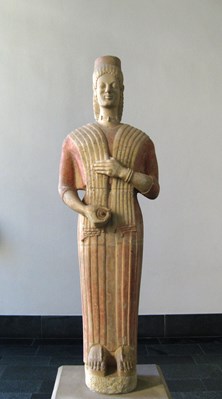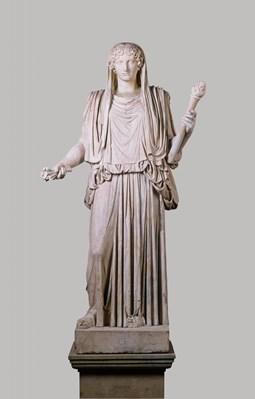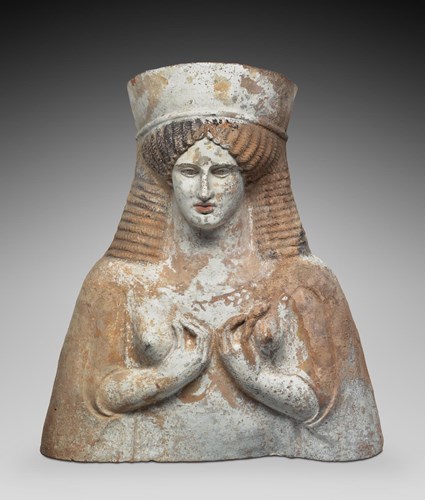Phaidentes
In some ancient Greek sanctuaries, there were officials in charge of the daily care, cleaning, maintenance, and repair of the statues of the gods. For example, the descendants of the sculptor Pheidias had undertaken the polishing of the ivory statue of Zeus in Olympia. A similar official was present at the temple of Olympian Zeus in Athens.

Berlin Goddess (a woman from a wealthy family represented as "the bride of the Underworld god Hades", i.e. Persephone), ca. 570-560 BCE, sculpture, Berlin State Museums (SMB) © Staatliche Museen zu Berlin, Antikensammlung / Gisela Geng CC BY-SA 4.0

Demeter, mid-5th century BCE, sculpture, Berlin State Museums (SMB) © Staatliche Museen zu Berlin, Antikensammlung / CC BY-SA 4.0
In Eleusis, the care and cleaning of the statues of the deities in the T…





